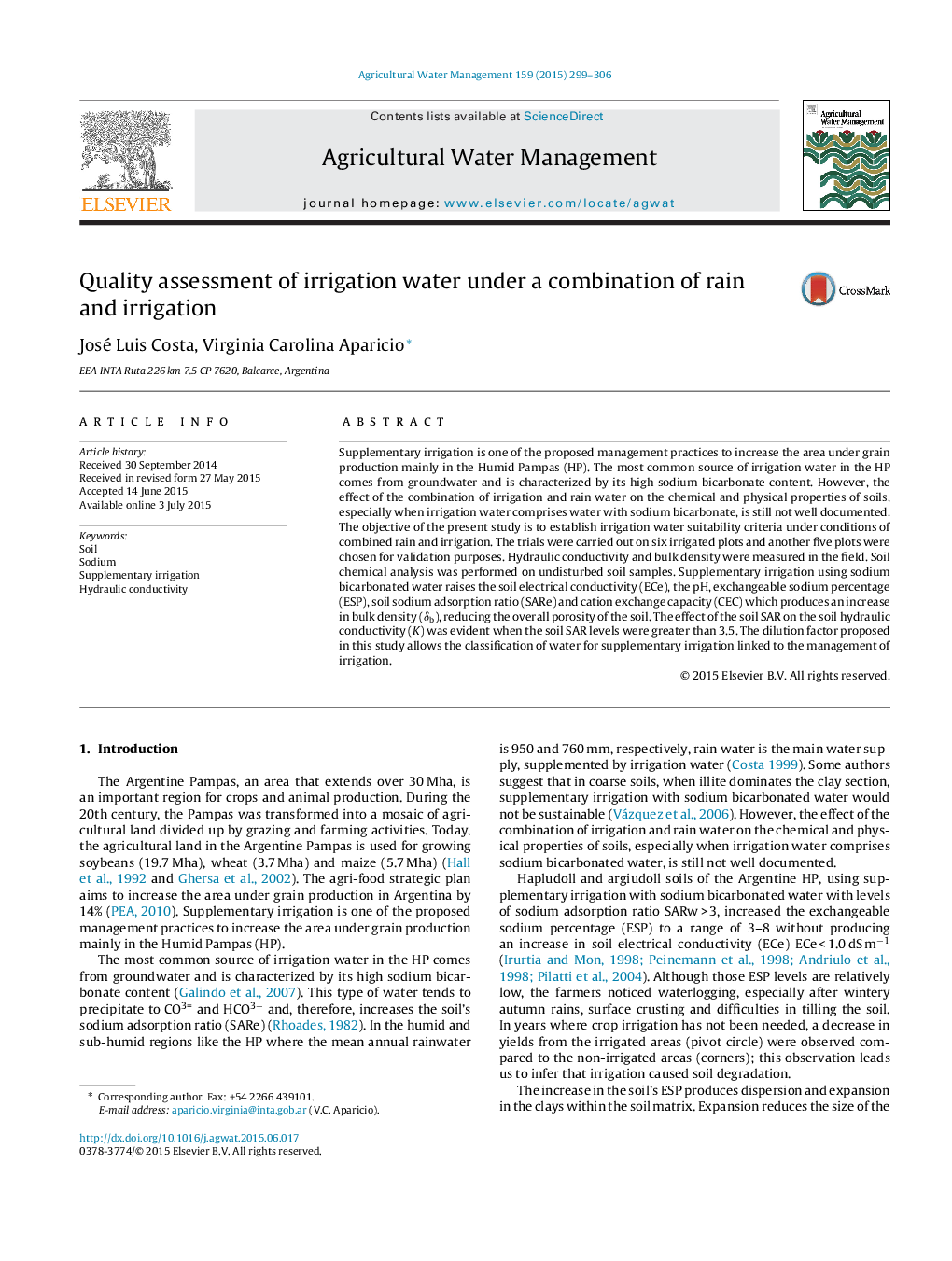| Article ID | Journal | Published Year | Pages | File Type |
|---|---|---|---|---|
| 6363745 | Agricultural Water Management | 2015 | 8 Pages |
Abstract
Supplementary irrigation is one of the proposed management practices to increase the area under grain production mainly in the Humid Pampas (HP). The most common source of irrigation water in the HP comes from groundwater and is characterized by its high sodium bicarbonate content. However, the effect of the combination of irrigation and rain water on the chemical and physical properties of soils, especially when irrigation water comprises water with sodium bicarbonate, is still not well documented. The objective of the present study is to establish irrigation water suitability criteria under conditions of combined rain and irrigation. The trials were carried out on six irrigated plots and another five plots were chosen for validation purposes. Hydraulic conductivity and bulk density were measured in the field. Soil chemical analysis was performed on undisturbed soil samples. Supplementary irrigation using sodium bicarbonated water raises the soil electrical conductivity (ECe), the pH, exchangeable sodium percentage (ESP), soil sodium adsorption ratio (SARe) and cation exchange capacity (CEC) which produces an increase in bulk density (δb), reducing the overall porosity of the soil. The effect of the soil SAR on the soil hydraulic conductivity (K) was evident when the soil SAR levels were greater than 3.5. The dilution factor proposed in this study allows the classification of water for supplementary irrigation linked to the management of irrigation.
Related Topics
Life Sciences
Agricultural and Biological Sciences
Agronomy and Crop Science
Authors
José Luis Costa, Virginia Carolina Aparicio,
